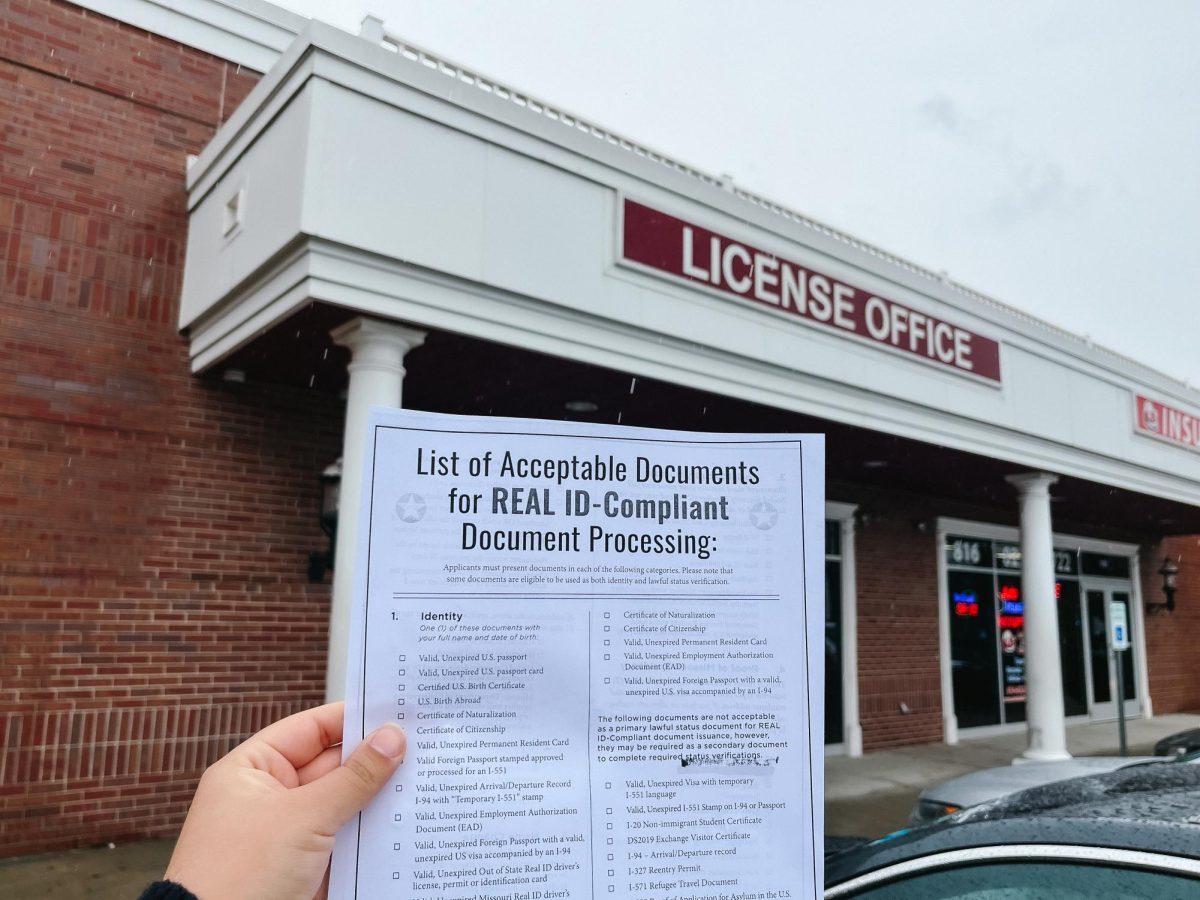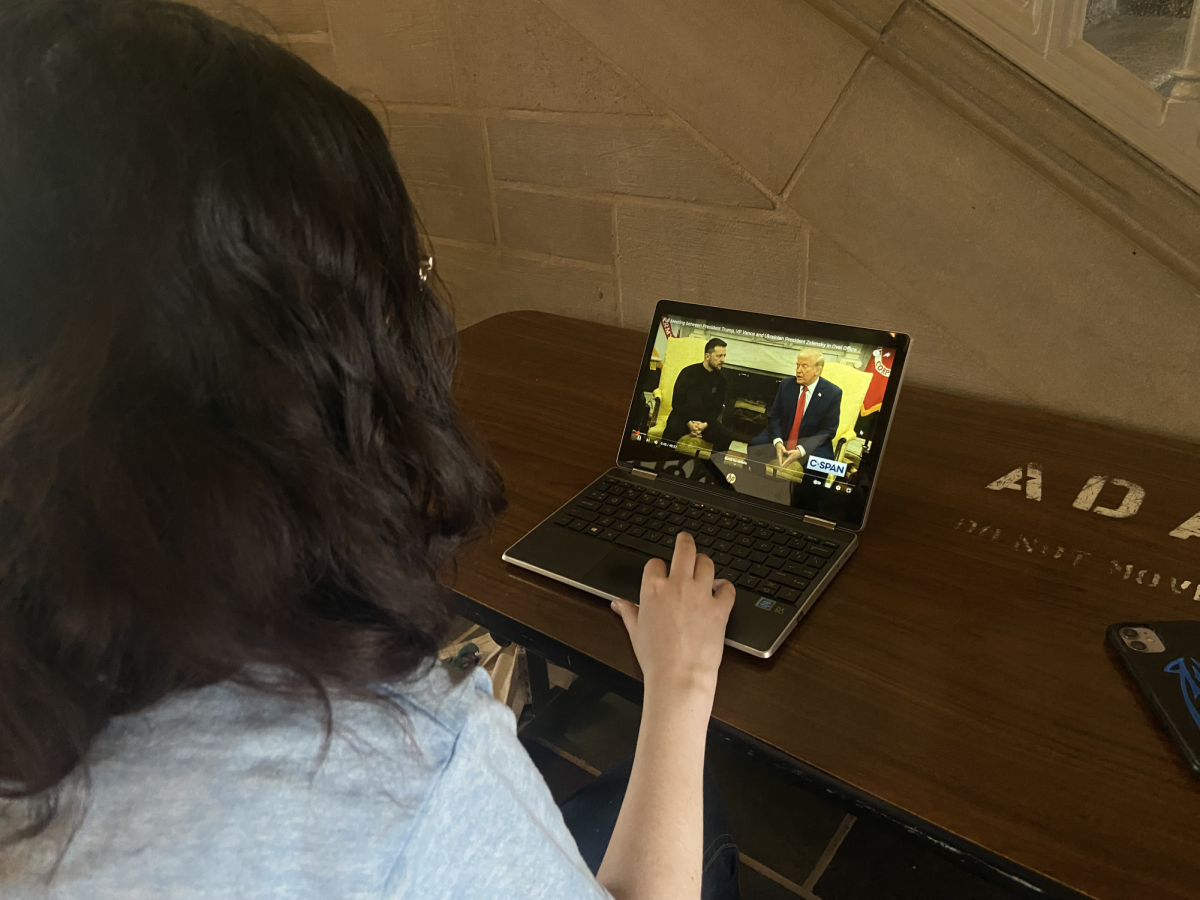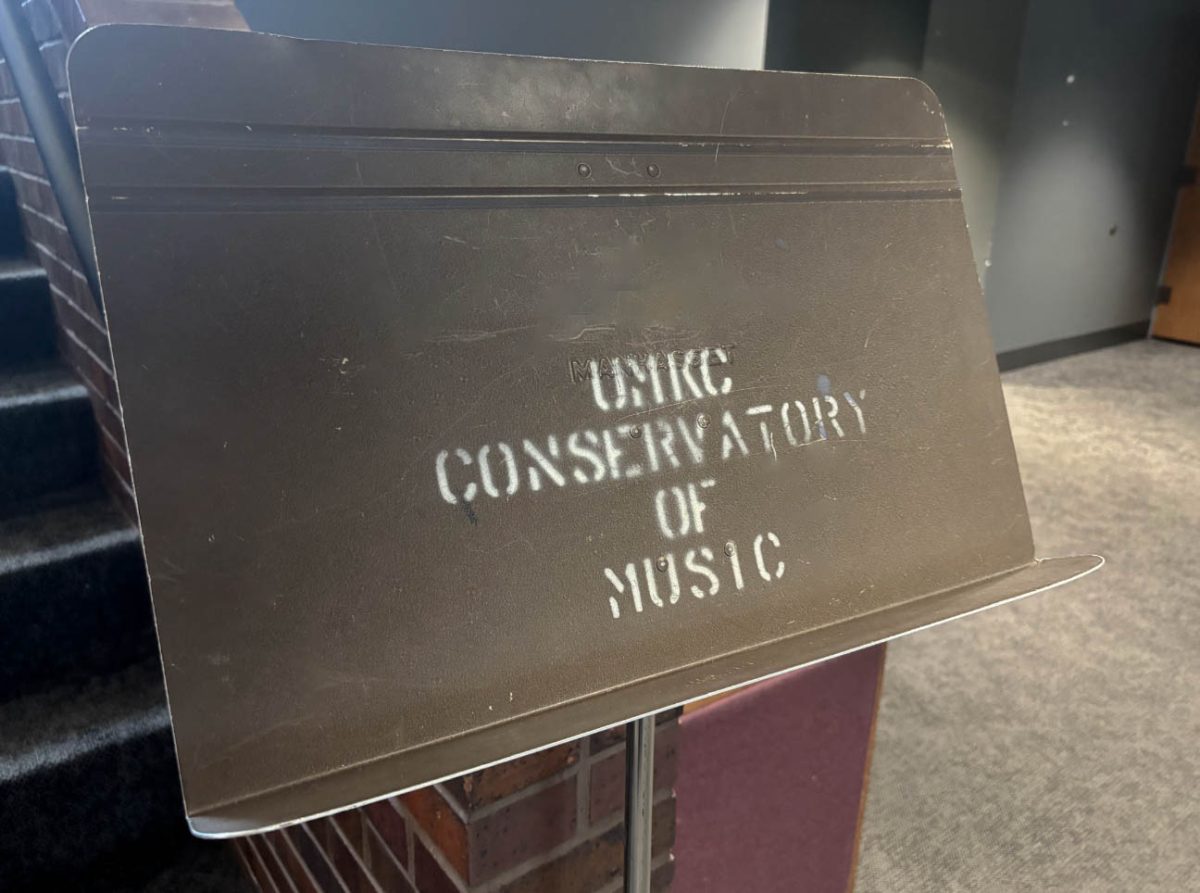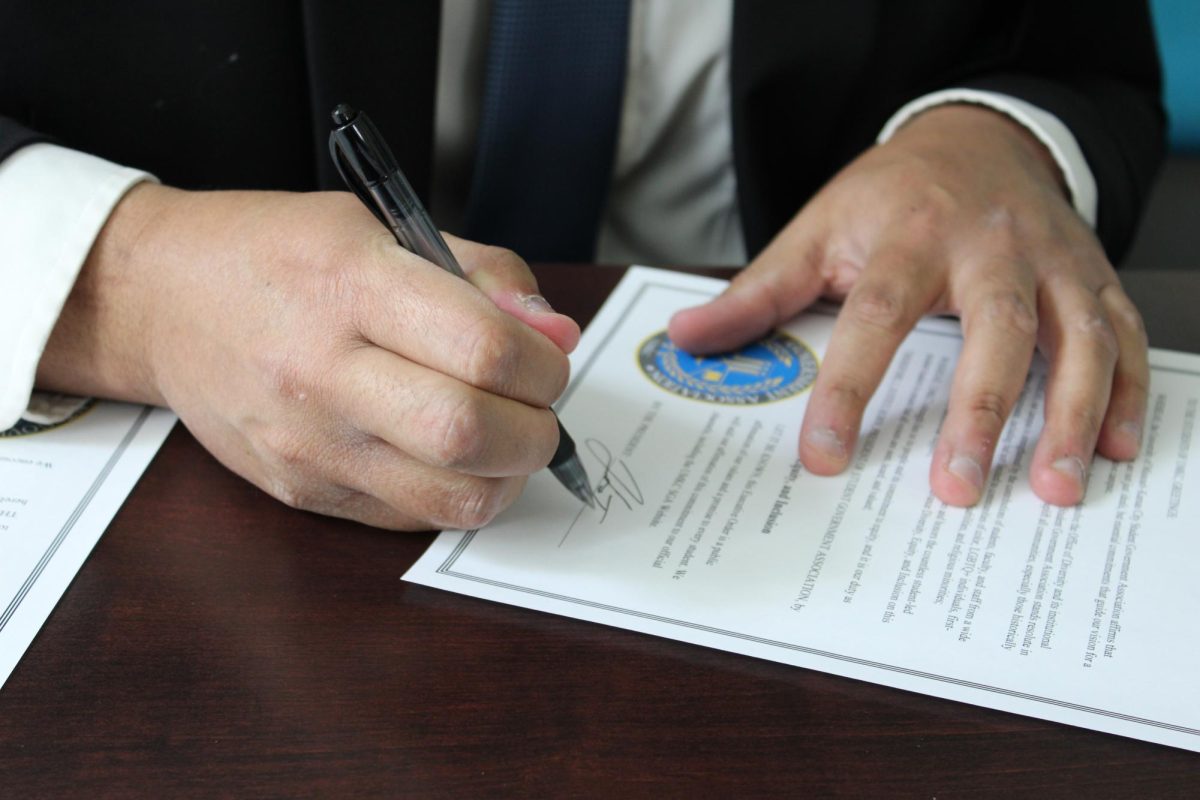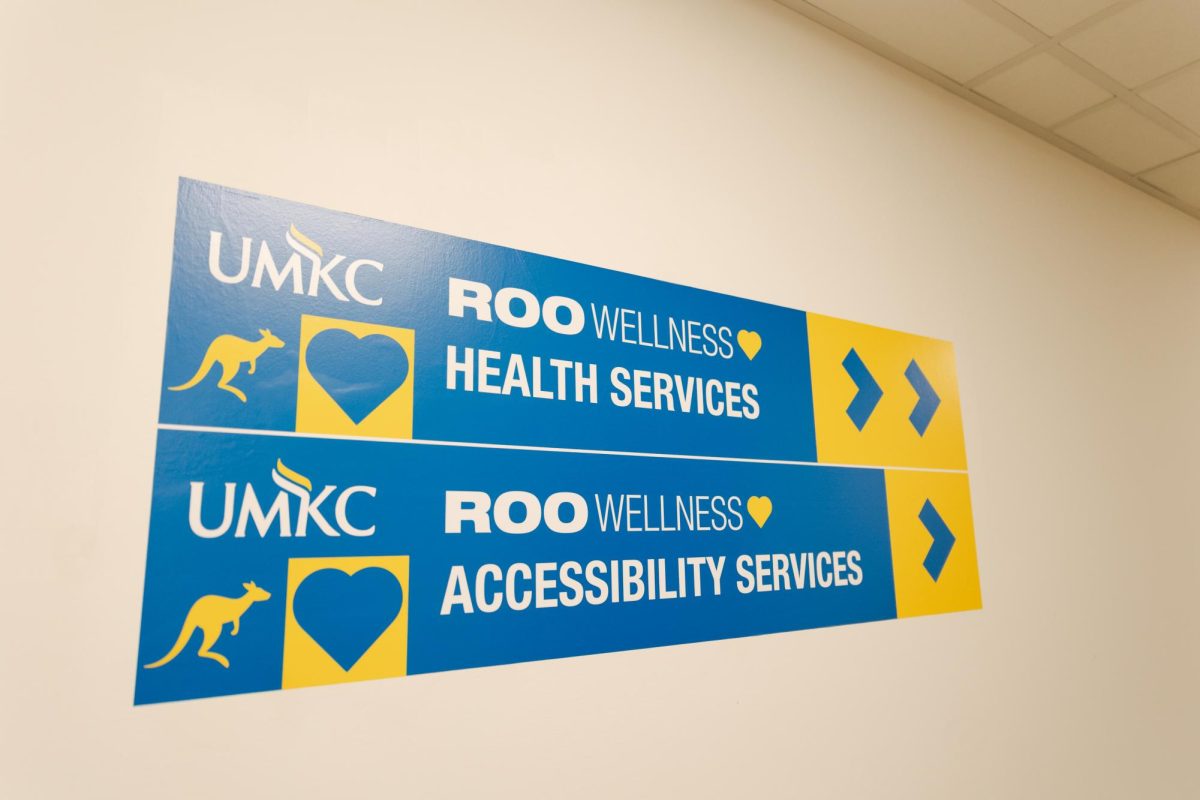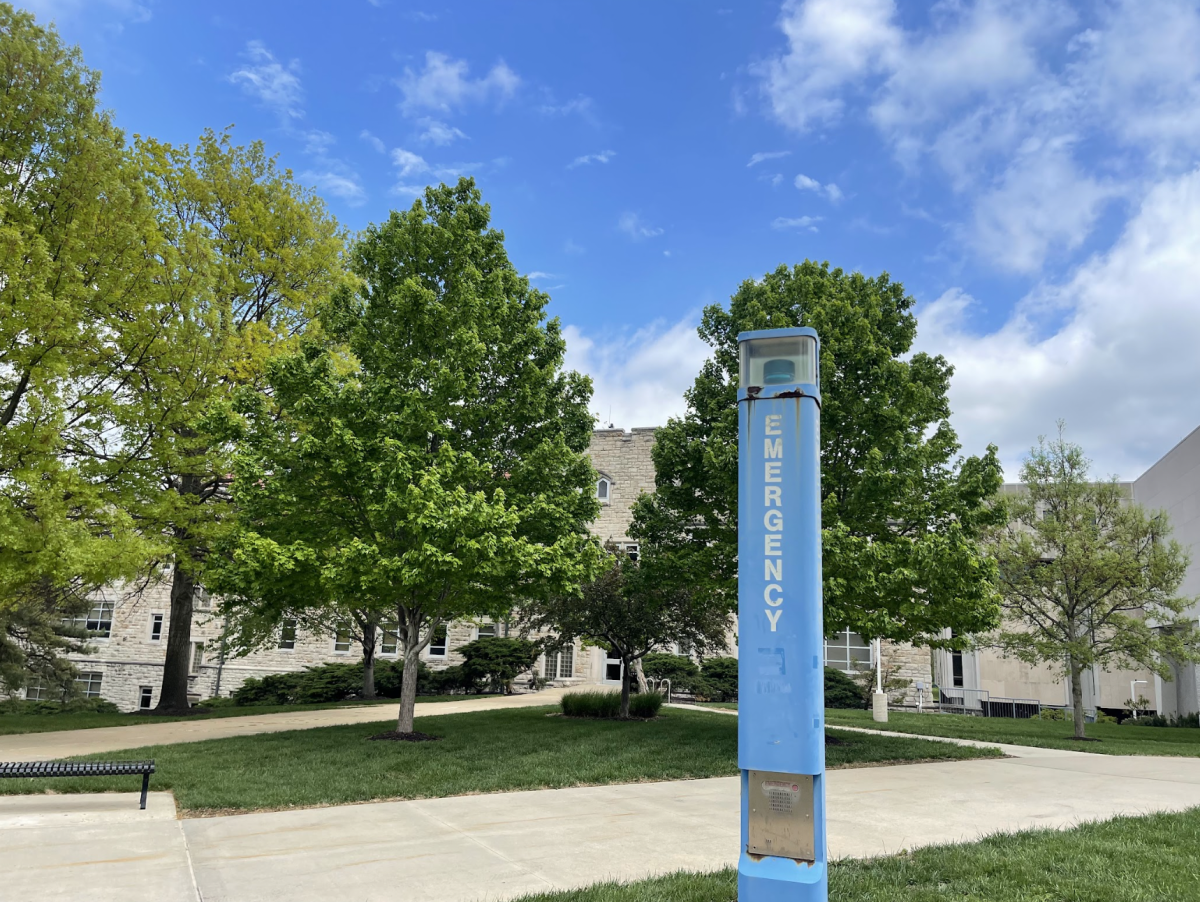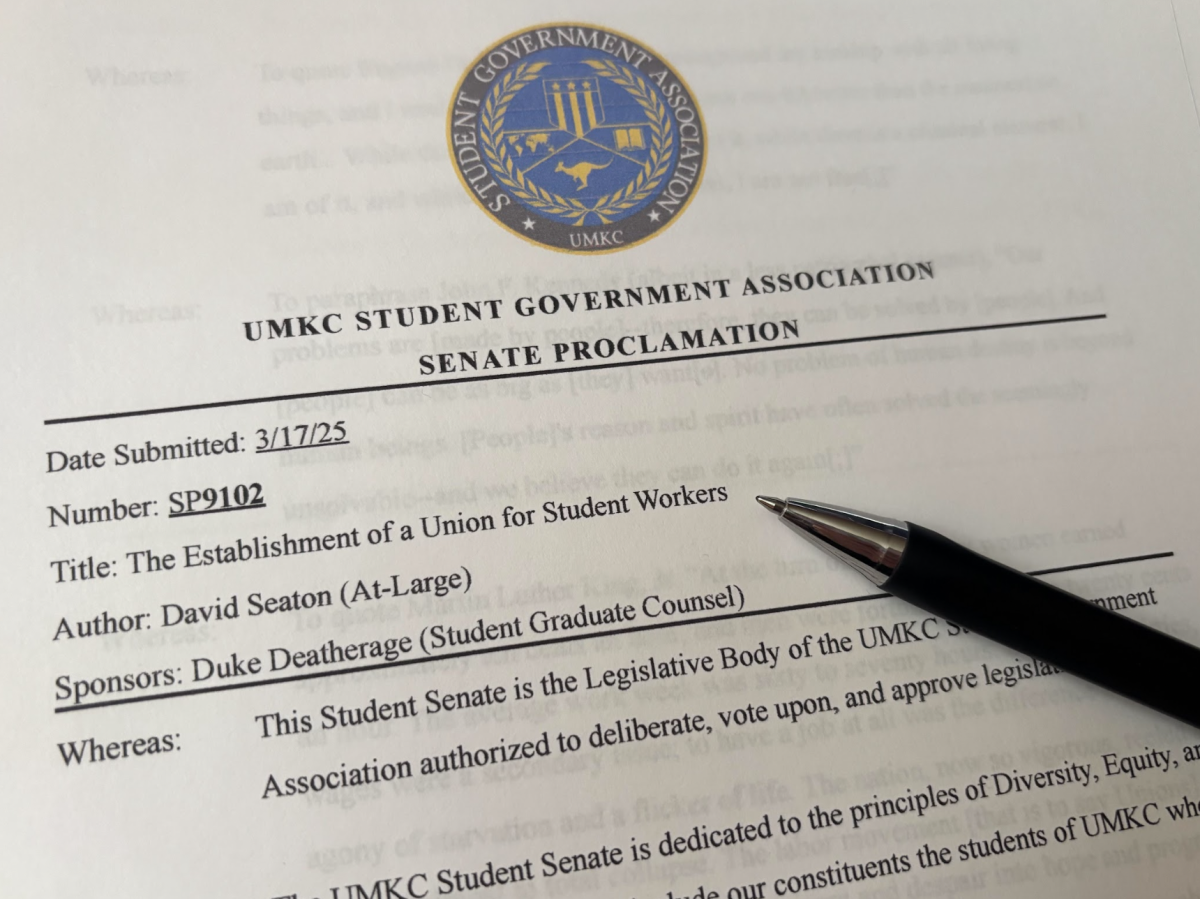The new federal Real ID policy will be enforced beginning on May 7th, 2025 but students question whether the country is prepared to implement this change.
The Real ID Act passed in 2005 to set security standards on state-issued forms of identification, to prevent fraud and enhance national security following the attacks on 9/11. The enforcement has been delayed multiple times due to the complexity of implementing nationwide standards.
“The marketing [for Real ID enforcement] is terrible ,” says senior political science major Keegan Watkins. “There’s not a lot of people who seem to know about it. I work in the US senate and I knew about it a month ago, which has been a thing they have been trying to get done for a while now.”
Starting May 7, 2025, federal agencies will require REAL ID-compliant documents for access to certain federal facilities and boarding domestic flights. To obtain one, you need documentation verifying your full legal name, date of birth, Social Security number, residency and lawful status in the United States.
As the deadline quickly approaches students raise concerns about the lack of awareness to update their ID’s.
“It kind of seems like it’s going to be a mess come May,” says senior political science major Rogelio Rodriguez. “I wouldn’t be surprised if they push it back.”
TSA and the Department of Homeland Security have cited that as of January 2024, in 34 states less than 60% of driver’s licenses and IDs in circulation are REAL ID-compliant, and in 22 of those states, fewer than 40% meet the REAL ID standards.
“I feel like it should have been talked about more in schools, the government should have issued a statement. Students should be aware especially since we are traveling. A lot of us have to study abroad, and a lot of us have to go out of state for internships,” says junior political science major Jasmine Gamel.
Students predict these stricter ID laws may serve a further purpose than enhancing national security. Some speculate that the increased focus on identification could be part of a larger shift in how personal data is handled or regulated, and potentially influencing topics like voting or privacy.
“Once more identification laws come into play, I believe that Americans will feel that effect especially if it bleeds into voter ID laws, and it will become a very polarizing issue,” said Gamel.
The cost to obtain a Real ID in Missouri is $26 for a three year ID and $52 for a six year ID. Many argue that this additional financial cost of securing proper identification could serve as a barrier to people obtaining their proper identification.
“It absolutely has to do with political ideologies,” said Watkins. “There’s arguments typically from liberals that have to do with the financial cost because they see it as a barrier to voting while the G.O.P. says we need secure voting.”


